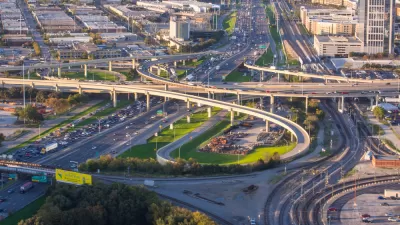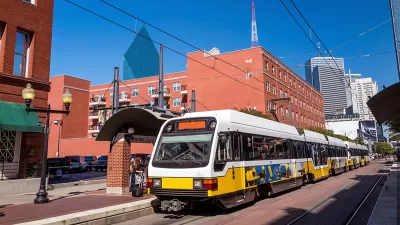Some planners and government officials in Dallas are concerned about the suburban boom occurring in counties north of Dallas. The reasons why are reminiscent of the Rust Belt in the 1960s.

"The continuing population boom in Dallas’ northern suburbs isn’t necessarily a good thing for the entire region, especially the urban core," according to a post by Brandon Formby.
"Collin and Denton Counties continue to draw highly educated, middle-class newcomers from across the country. Meanwhile, Dallas continues to grapple with serving a poorer population. And the city must do so without the benefit of increased tax revenue that comes with exploding new developments and neighborhoods its northern neighbors enjoy."
According to Formby, the city recently launched two planning-related efforts to counter the trends toward the north and away from the urban core. One is called Neighborhood Plus, "an ambitious fledgling plan that calls for implementing a $10.25-an-hour minimum wage, empowering neighborhoods to identify their most pressing needs and partnering with nonprofits to help do what local government cannot." The second is an overhaul of a planning overhaul, designed "to make it bureaucratically easier to add high-density developments, green spaces, and pedestrian- and bike-friendly infrastructure, all of which are said to draw young professionals and middle-class residents."
The article includes more details about the implications of the boom in the northern suburbs for Dallas schools, as well as the possibility of a proposal to tear down I-345 between Deep Ellum and East Dallas to help created a new places for dense housing and middle class neighborhoods.
FULL STORY: Planners fear for Dallas’ urban core amid suburbs’ growth

Maui's Vacation Rental Debate Turns Ugly
Verbal attacks, misinformation campaigns and fistfights plague a high-stakes debate to convert thousands of vacation rentals into long-term housing.

Planetizen Federal Action Tracker
A weekly monitor of how Trump’s orders and actions are impacting planners and planning in America.

San Francisco Suspends Traffic Calming Amidst Record Deaths
Citing “a challenging fiscal landscape,” the city will cease the program on the heels of 42 traffic deaths, including 24 pedestrians.

Defunct Pittsburgh Power Plant to Become Residential Tower
A decommissioned steam heat plant will be redeveloped into almost 100 affordable housing units.

Trump Prompts Restructuring of Transportation Research Board in “Unprecedented Overreach”
The TRB has eliminated more than half of its committees including those focused on climate, equity, and cities.

Amtrak Rolls Out New Orleans to Alabama “Mardi Gras” Train
The new service will operate morning and evening departures between Mobile and New Orleans.
Urban Design for Planners 1: Software Tools
This six-course series explores essential urban design concepts using open source software and equips planners with the tools they need to participate fully in the urban design process.
Planning for Universal Design
Learn the tools for implementing Universal Design in planning regulations.
Heyer Gruel & Associates PA
JM Goldson LLC
Custer County Colorado
City of Camden Redevelopment Agency
City of Astoria
Transportation Research & Education Center (TREC) at Portland State University
Jefferson Parish Government
Camden Redevelopment Agency
City of Claremont





























